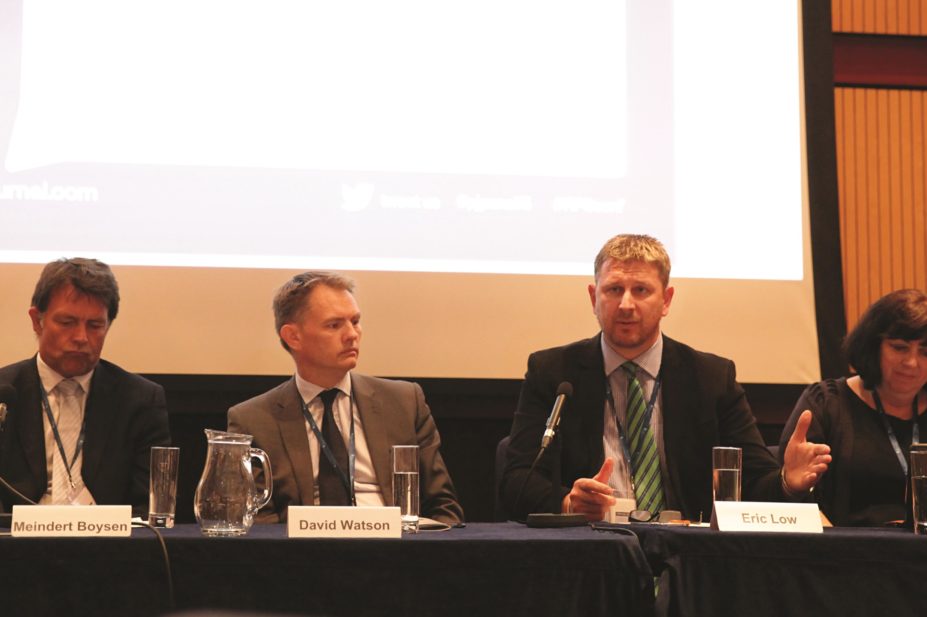
Nadia Attura
The Pharmaceutical Journal held a panel discussion on 14 September 2015 at the Royal Pharmaceutical Society’s annual conference in Birmingham, where it brought together key opinion leaders from industry, the NHS and professional and patient groups to debate the high costs of medicines (see the panellists’ CV details below).
Click on the main video above for the full discussion or find the shorter videos below, which address key topics such as the sustainability of the cancer drugs fund, patient access schemes and how society should fund costly medicines.
The debate is a timely one as the government’s ‘Accelerated access review’, which aims to speed up access to innovative drugs, will report its findings in 2016.
The debate focuses on whether drugs with high prices are valuable and affordable to the NHS. There are many examples of high priced drugs such as Kadcyla, the breast cancer drug, which extends survival by around six months but costs £90,000 per patient, or the hepatitis C treatment, Solvaldi, which eliminates the virus in 95% of cases, yet costs £70,000 for a 24-week course.
The discussion also looks at what happens to innovation if drugs are constantly rejected for use by the health service.
Highlights of the panel discussion
How should society value and fund costly medicines?
The panel looks at the complex way society values costly medicines and whether that assessment should be undertaken by one body, the well-established National Institute for Health and Care Excellence. The panel also looks at whether there has been sufficient public discussion around this topic.
The sustainability of the Cancer Drugs Fund
The Cancer Drugs Fund has been much criticised partly for undermining the work of the National Institute for Health and Care Excellence and for picking cancer treatments over drugs for other conditions. The fund has also seen a spate of delistings in 2015 because of budgetary concerns. In this video, panellists discuss whether the fund is worth continuuing and whether the pharmaceutical industry has priced itself out of the fund.
How successful have Patient Access Schemes been?
Patient access schemes seem to have become the norm rather than the exception to the rule. In this video, the panel looks at whether negotiations around the pricing of drugs needs to be taken at a national level.
The Pharmaceutical Journal’s panel discussion: Medicines, innovation and the value of medicine
14 September 2015: Royal Pharmaceutical Society’s annual conference, Birmingham
Panellists:
Meindert Boysen, programme director of technology appraisals at the National Institute for Health and Care Excellence (NICE).
Boysen is also responsible for NICE’s patient access schemes liaison unit, and the highly specialised technologies programme. Meindert qualified as a pharmacist in the Netherlands, and has held positions in the industry and the King’s Fund.
David Watson, director of pricing and reimbursement at the Association of the British Pharmaceutical Industry.
Watson is primarily responsible for leading the implementation of the 2014 Pharmaceutical Price Regulation Scheme (PPRS), which covers the majority of branded drugs sold to the NHS, and he has spent much of his career with Pfizer.
Eric Low, chief executive officer of Myeloma UK.
Low spends much of his time campaigning on behalf of myeloma patients for the best standards of treatment, as well as developing strategies to remove barriers that are slowing down access to treatments.
Andrew White, head of medicines optimisation for the Greater Manchester Shared Service.
White’s team provides strategic support to all Clinical Commissioning Groups in the Greater Manchester area, which serves 2.8 million people. White has worked in clinical and managerial roles in the NHS, as well as a community pharmacist.
Jayne Lawrence, chief scientist of the Royal Pharmaceutical Society and professor of biophysical pharmaceutics at King’s College London.
Lawrence’s area of expertise includes pharmaceutical science, particularly drug and gene delivery. Lawrence is a pharmacist who has spent the majority of her career in academic pharmacy.
Moderator: Elizabeth Sukkar, MRPharmS, Deputy News Editor, The Pharmaceutical Journal


